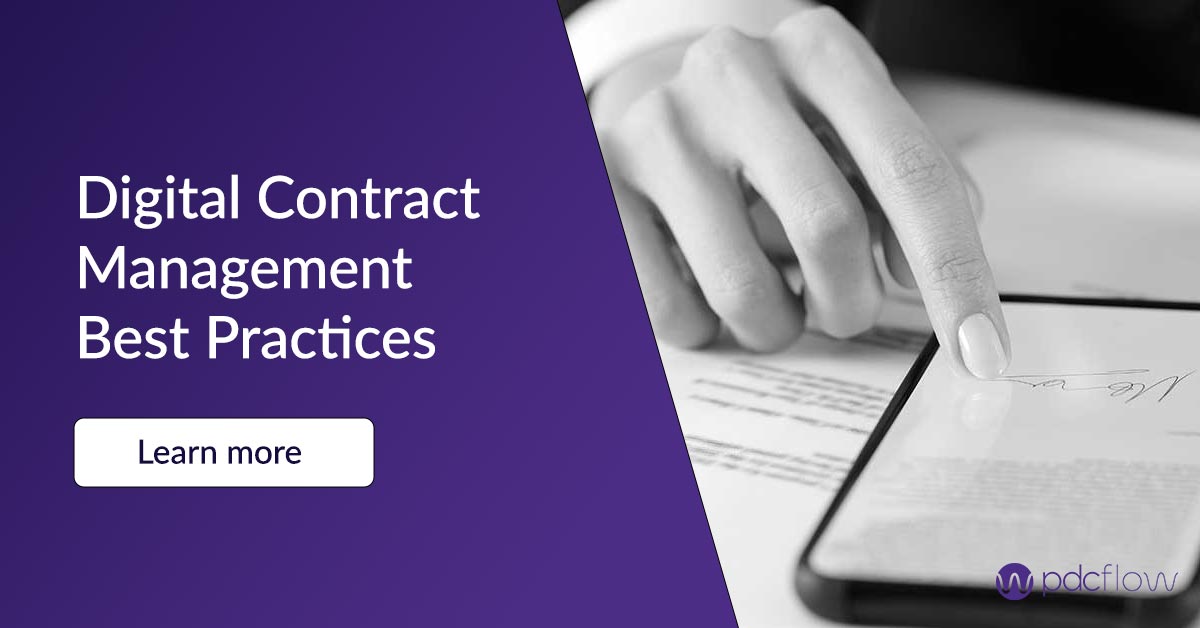Companies have countless interactions with customers, employees, vendors, and stakeholders in the course of business. Any time a company makes a deal with one of these entities, it’s important to use the appropriate type of contract to protect the parties involved.
Some business contracts are long and detailed because they need to cover all the specifics of a deal. Others don’t require more than a brief statement of agreement to your terms.
Does your business struggle to manage all the types of contracts needed to function? Are you still using outdated practices to manage contract templates and to store signed agreements?
Read on to learn about basic business contract types and how to choose a digital signature software for better contract management.
Contract Definitions and General Contract Types
The types of contracts a business uses most will depend on the products or services offered and other aspects of daily operation.
Before outlining the terms and conditions of a deal, identify which kinds of contracts are going to work best. Some general terms and contract types to know are:
- Standard contract: A standard contract is a basic contract that cannot be negotiated or amended. There is no customization or need to personalize terms for each signer. It is also sometimes referred to as a boilerplate contract.
- Contract amendment: Contract amendments are any official changes to a deal that need to be agreed upon and added to a contract after it has been signed. This requires agreement from both parties and an updated signature to verify everyone is aware of the alterations.
- Bilateral contract: Bilateral contract means that both parties involved have made a promise that they must fulfill. The most common business-to-customer contracts include what a company promises to provide, and how much the customer agrees to pay for those goods or services.
- Unilateral contract: These contracts are less common in day-to-day business for companies. They are usually an agreement for only one party to provide something for the other. The most common example of a unilateral contract is a reward or giveaway.
- Implied contract: An implied contract is an agreement that is based on the actions and intentions of the parties. For example, if a customer orders food at a restaurant, it is implied that they will receive the items they ordered, and it is also implied that they will pay the listed price.
- Express contract: Unlike implied contracts, express contracts don’t rely on assumptions. Rather, they outline the terms and conditions of a deal either verbally or in writing.
Business-Specific Types of Contracts
There are many different types of contracts, and each has its own purpose. Bilateral, standard or other contract types are general descriptions for the kinds of deals you’re planning to make.
After these details are decided, you need to determine the specific type of contract you should be using. Some of the most common types of contracts for small and medium-sized businesses are:
Sales agreements/Bills of sale
Enterprise agreements
Employment agreements
Contractor agreements and retainers
Service agreements
Fixed price contract
Cost reimbursement contracts
Cost plus contract
Digital Contract Management
Business norms have changed considerably in the past several years. Most companies have moved away from traditional signatures on paper contracts because it’s expensive, slow, and inconvenient compared to electronic signatures.
Instead, adopting contract management tools is the new professional norm for sending digital contracts. Digital signatures lower operating costs by cutting out paper, postage, and labor by digitizing document delivery and signature management.
The faster turnaround times for a contract via esignature also mean shorter cash flow cycles. Digital contracts give you faster revenue recognition from deals closed or services delivered.
PDCflow for Contracts
PDCflow’s document, communication, and payment software provides all the tools your company needs to manage contract workflows. Send documents, contracts, and invoices, or request photos, files, or payments — all in one platform. With PDCflow, you get:
- Unlimited template creation: Create unlimited contract templates, so you have workflows ready for every type of customer interaction.
- Multi-Recipient Flows: Send contracts to more than one recipient for signing. Can be sent in specific order, or sent to all recipients at once. Customize what each recipient will receive in their request.
- Email and SMS: Send contracts digitally, through both email and SMS, to cater to customer preference and improve engagement rates.
- Personalized bulk messages: Upload an Excel or CSV file and send messages to up to 5,000 recipients at one time.
- Integrated payments: Get more flexibility in choosing your payment processor. Because payments are a central part of our software, businesses experience better reporting, processing choices, and payment options for customers.
- Insights report: In-depth reporting gives you a better understanding of financial performance.
- Event notifications: Event notifications help staff members or whole teams keep track of deal stages, without requiring manual check-ins. Simply sign up and get automatically notified as the customer goes through each stage of the process.
Want to learn more about how PDCflow’s document, signature, and payment tools can help you manage all kinds of contract and payment workflows? Request a call from a PDCflow Sales Executive today.












